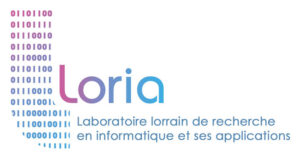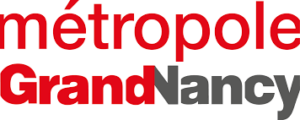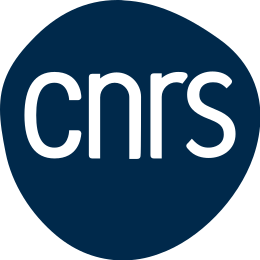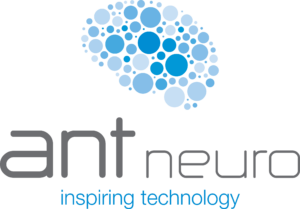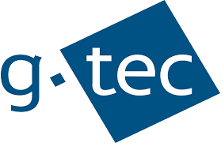%%%%% ENGLISH VERSION BELOW %%%%%
La sixième édition des Journées scientifiques CORTICO aura lieu du 22 au 23 Mai 2024 à Nancy à l’IDMC.
Les soumissions des résumés (2000 caractères avec espaces en français ou en anglais) se font ici (date limite 29 mars 2024).
Les informations pour l’inscription sont disponibles ici. L’inscription sera comme les années précédentes de 50 € pour les étudiants, et 100 € pour les non-étudiants. Inscription gratuite pour les membres de l’association.
Le programme est le suivant : (en cours de finalisation)
- Mercredi 22 mai
- 09:00-09:30 – Accueil des participants
- 09:30-09:45 – Mot du Président
- 09:45-10:25 – Cours 1 – Penser le design d’expériences en BCI – Stéphanie Fleck (Univ. Lorraine)
- 10:25-11:10 – Présentations orales de jeunes scientifiques
- Indentifying and modelling the factors influencing the acceptability of BCIs as a tool to reduce motor symptoms in patients with Parkinson’s disease
Cloé Guerrini (INCIA); Léa Pillette (IRISA); Claire Dussard (Institut du Cerveau); Lorena Delgado-Zabalza (CNRS); Nathalie George (Institut du Cerveau); Camille Jeunet-Kelway (CNRS) - Temporal Dynamics of Networks in MI BCI
Tristan Venot (Inria Paris); Arthur Desbois (INRIA); Fabrizio De Vico Fallani (INRIA) - A Heterogeneous Transfer Learning for P300 BCIs – Fahim Doumi (GIPSA-lab); Marco Congedo (GIPSA-lab); Fatih Altindis (GIPSA)
- Indentifying and modelling the factors influencing the acceptability of BCIs as a tool to reduce motor symptoms in patients with Parkinson’s disease
- 11:10-11:30 – Présentations “booster” des posters du matin
- 11:30-11:45 – Pause
- 11:45-12:45 – Session posters & stands pour les sponsors
- 12:45-14:00 – Déjeuner
- 14:00-14:40 – Cours 2 – (Non)parametric statistical testing of EEG-and MEG-data Robert Oostenveld ( Donders Institute, Radboud University Nijmegen)
- 14:40-15:00 – Présentations “booster” des posters de l’après-midi
- 15:00-16:00 – Session posters & stands pour les sponsors
- 16:00-16:15 – Pause & visite des stands des sponsors
- 16:15-17:00 – Présentations orales de jeunes scientifiques
- An Automatic Riemannian Artifact Rejection Method for P300-based BCIs
Davoud Hajhassani (CNRS, UGA); Jeremie Mattout (Inserm); Marco Congedo (UGA, CNRS) - Human-Robot Social Interaction: a Rock-Paper-Scissors Protocol for Mental States Analysis and Gesture Prediction
Sarah Hamdi Cherif (Univ Lorraine, LORIA); Hendry Ferreira Chame (Université de Lorraine, CNRS, LORIA); Laurent Bougrain (Université de Lorraine, CNRS, LORIA) - Active Inference model of individual learning to control a motor imagery BCI
Côme Annicchiarico (INSERM); Jeremie Mattout (Inserm); Fabien Lotte (INRIA)
- An Automatic Riemannian Artifact Rejection Method for P300-based BCIs
- 17:00-18h00 – Table ronde – l’humain réparé : implication éthique et perception de soi, Eric Fourneret (université catholique de Lille), Juliette Sénéchal (Université de Lille), Hakim Si-Mohammed (Université de Lille), Blaise Yvert (Institute des neurosciences de Grenoble),…
- 19:00-19:45. Visite guidée de la vieille ville
- 20:00- Dîner au Grand Café Foy, place Stanislas (classée par l’Unesco au patrimoine mondial de l’Humanité)
- Jeudi 23 mai
- 9:00-9:15 – Mot d’introduction à l’IDMC et au LORIA
- 9:15-10:15 – Keynote 1 – Improvement of user training protocols in motor imagery BCIs – Maryam Alimardani (Vrije Universiteit Amsterdam)
- 10:15-10:45 – Sponsors highlight
- 10:45-11:15 – Pause & visite des stands des sponsors
- 11:15-12:00 – Présentations orales de jeunes scientifiques
- Embodiment of a Prosthesis through Direct Optogenetic Stimulations of the Cortex in the Mouse Model
Zineb Hayatou (CNRS, NeuroPSI); Luc Estebanez (CNRS); Valerie Ego-Stengel (NeuroPSI); Shulz Daniel (CNRS) - Median Nerve Stimulation to Detect Awake and Anesthetized States with Riemannian Classifiers
Valérie Marissens Cueva (Inria Bordeaux, LaBRI, LORIA); Sébastien Rimbert (Inria BSO); Ana Maria Cebolla Alvarez (Laboratory of Neurophysiology and Movement Biomechanics, Université Libre de Bruxelles, Bruxelles, Belgium); Mathieu Petieau (Laboratory of Neurophysiology and Movement Biomechanics, Université Libre de Bruxelles, Bruxelles, Belgium); Viktoriya Vitkova (Laboratory of Neurophysiology and Movement Biomechanics, Université Libre de Bruxelles, Bruxelles, Belgium); Iraj Hashemi (Laboratory of Neurophysiology and Movement Biomechanics, Université Libre de Bruxelles, Bruxelles, Belgium); Guy Cheron (Laboratory of Neurophysiology and Movement Biomechanics, Université Libre de Bruxelles, Bruxelles, Belgium); Claude Meistelman (CHRU de Nancy, Vandoeuvre-lès-Nancy, France); Philippe Guerci (CHRU de Nancy, Vandoeuvre-lès-Nancy, France); Denis Schmartz (Hôpital Universitaire de Bruxelles – Université Libre de Bruxelles, Bruxelles, Belgium); Seyed Javad Bidgoli (CHU Brugmann, Bruxelles, Belgium); Laurent Bougrain (Université de Lorraine, CNRS, LORIA); Fabien Lotte (INRIA) - Exploring Thermal Feedback in Brain-Computer Interface User Training
Francois Le Jeune (Univ Rennes, Inria, CNRS, IRISA); Emile Savalle (INRIA); Anatole Lecuyer (Inria); Marc Macé (Univ Rennes, Inria, CNRS, IRISA); Pierre Maurel (Univ Rennes, Inria, CNRS, Inserm); Léa Pillette (Univ Rennes, Inria, CNRS, IRISA) - Intra and inter-subject variability in long-term ECoG-implanted patients for motor BCI: insights and training improvement strategies
Lucas Struber (CEA); Félix Martel (CEA); Serpil Karakas (CEA); Violaine Juillard (CEA); Angelina Bellicha (CEA); Alexandre Bleuzé (CEA); Fabien Sauter (CEA); Stephan Chabardès (CHU Grenoble); Henri Lorach (EPFL); Guillaume Charvet (Cea leti Clinatec); Tetiana Aksenova (GRU)
- Embodiment of a Prosthesis through Direct Optogenetic Stimulations of the Cortex in the Mouse Model
- 12:00-13:30 – Déjeuner
- 13:30-14:30 – Keynote 2 – Restoring sensory and motor functions using bidirectional neuroprosthetics – Solaiman Shokur (EPFL)
- 14:30-15:15 – Présentations orales de jeunes scientifiques
- Fast and reliable hand motor imagery decoding based on beta burst rate modulations
Sotirios Papadopoulos (University Lyon 1); Ludovic Darmet (CRNL and ISC); Maciej Szul (ISC); Marco Congedo (University Grenoble Alpes); Jeremie Mattout (Inserm) - Alpha, Sensorimotor Rhythms and Beta Event-Related Desynchronisation during Kinesthetic Motor Imagery of experts and novices – Margaux Izac (Univ Bordeaux, INSERM, BPH Research Center); Eléa Rossignol (Université de Bordeaux, CNRS, EPHE, INCIA, UMR5287 F-33000 Bordeaux, France); Emeline Pierrieau (INCIA (Université de Bordeaux)); Natalia Grechukhin (Université de Bordeaux, CNRS, EPHE, INCIA, UMR5287 F-33000 Bordeaux, France); Elina Coudroy (Université de Bordeaux, CNRS, EPHE, INCIA, UMR5287 F-33000 Bordeaux, France); Bernard N’Kaoua (Université de Bordeaux, INSERM, BPH Research Center, UMR1219, Bordeaux); Léa Pillette (Univ Rennes, Inria, CNRS, IRISA); Camille Jeunet-Kelway (CNRS)
- Implementation of a passive code-VEP Brain Computer Interface with transparent flickers
Pietro Cimarosto (ISAE-SUPAERO); Kalou Cabrera-Castillos (ISAE-SUPAERO); Sébastien Velut (ISAE-SUPAERO); Raphaëlle N. Roy (ISAE SUPAERO); Frédéric dehais (ISAE-SUPAERO)
- Fast and reliable hand motor imagery decoding based on beta burst rate modulations
- 15:15-15:30 – Highlights CORTICO
- 15:30-16:30 – Assemblée Générale de CORTICO
Informations pour les orateurs et oratrices : les présentations doivent durer 8 minutes, plus 2 minutes de questions. Les diapositives sont à envoyer par mail le vendredi 17 mai au plus tard, en powerpoint ou pdf à laurent.bougrain@loria.fr et raphaelle.roy@isae-supaero.fr
Informations pour les présentations de poster : vous pourrez accrocher vos posters le matin ou pendant le déjeuner en fonction de votre session. Les posters sont à imprimer préférentiellement au format A0 en portrait. Vous aurez également l’opportunité de présenter votre poster lors d’une présentation flash : vous aurez 50 secondes et une diapositive pour inciter l’audience à venir voir votre poster. Merci d’envoyer votre diapositive au format pdf pour le vendredi 17 mai à laurent.bougrain@loria.fr et raphaelle.roy@isae-supaero.fr
Comité d’organisation CORTICO : Laurent Bougrain, Camille Jeunet, Valérie Marissens Cueva, Laëtitia Raison-Aubry, Sébastien Rimbert & Raphaëlle Roy
%%%%% ENGLISH VERSION %%%%%
The sixth edition of the CORTICO Scientific Days will take place from May 22 to 23, 2024 in Nancy at the IDMC.
Abstracts can be submitted here. (2000 characters inclusing spaces in English or French, deadline March 29, 2024).
Registration information is available here. As in previous years, registration will cost €50 for students and €100 for non-students. Registration is free for association members.
The program is as follows: (currently being finalized)
- Wednesday May 22 – Young Scientists Day
- 09:00-09:30 – Welcome of participants
- 09:30-09:45 – Word from the President
- 09:45-10:25 – Course 1 (in French)- Penser le design d’expériences en BCI – Stéphanie Fleck, Univ. Lorraine
- 10:25-11:10 – Oral presentations by young scientists
- Indentifying and modelling the factors influencing the acceptability of BCIs as a tool to reduce motor symptoms in patients with Parkinson’s disease
Cloé Guerrini (INCIA); Léa Pillette (IRISA); Claire Dussard (Institut du Cerveau); Lorena Delgado-Zabalza (CNRS); Nathalie George (Institut du Cerveau); Camille Jeunet-Kelway (CNRS) - Temporal Dynamics of Networks in MI BCI
Tristan Venot (Inria Paris); Arthur Desbois (INRIA); Fabrizio De Vico Fallani (INRIA) - A Heterogeneous Transfer Learning for P300 BCIs – Fahim Doumi (GIPSA-lab); Marco Congedo (GIPSA-lab); Fatih Altindis (GIPSA)
- Is deep learning really better? Comparing within-subject FBCSP+LDA and cross-subject Deep learning classifier in an online experiment
David Trocellier (Inria); Fabien Lotte (Inria); Bernard Nkaoua (Université de Bordeaux)
- Indentifying and modelling the factors influencing the acceptability of BCIs as a tool to reduce motor symptoms in patients with Parkinson’s disease
- 11:10-11:30 – Booster presentations of morning posters
- 11:30-11:45 – Break
- 11:45-12:45 – Poster session & sponsor stands
- 12:45-14:00 – Lunch
- 14:00-14:40 – Lecture 2 – (Non)parametric statistical testing of EEG-and MEG-data – Robert Oostenveld, Donders Institute for Brain, Cognition and Behaviour (NTL)
- 14:40-15:00 – Booster presentations of afternoon posters
- 15:00-16:00 – Poster session & sponsor stands
- 16:00-16:15 – Break & visit to sponsor stands
- 16:15-17:00 – Oral presentations by young scientists
- An Automatic Riemannian Artifact Rejection Method for P300-based BCIs
Davoud Hajhassani (CNRS, UGA); Jeremie Mattout (Inserm); Marco Congedo (UGA, CNRS) - Human-Robot Social Interaction: a Rock-Paper-Scissors Protocol for Mental States Analysis and Gesture Prediction
Sarah Hamdi Cherif (Univ Lorraine, LORIA); Hendry Ferreira Chame (Université de Lorraine, CNRS, LORIA); Laurent Bougrain (Université de Lorraine, CNRS, LORIA) - Active Inference model of individual learning to control a motor imagery BCI
Côme Annicchiarico (INSERM); Jeremie Mattout (Inserm); Fabien Lotte (INRIA)
- An Automatic Riemannian Artifact Rejection Method for P300-based BCIs
- 17:00-18:00 – Round table – the repaired human: ethical implications and self-perception – Eric Fourneret (catholic university of Lille), Juliette Sénéchal (University of Lille), Hakim Si-Mohammed (University of Lille), Blaise Yvert (Grenoble Institute for neuroscience), …
- 19:15-20:00. Guided tour of the old town
- 20:00- Dinner at Grand Café Foy,, Place Stanislas (Unesco World Heritage Site)
- Thursday May 23 – CORTICO Day
- 9:00-9:15 – Introduction to IDMC and LORIA
- 9:15-10:15 – Keynote 1 – improvement of user training protocols in motor imagery BCIs – Maryam Alimardani (Vrije Universiteit Amsterdam)
- 10:15-10:45 – Sponsors highlight
- 10:45-11:15 – Break & visit to sponsor stands
- 11:15-12:00 – Oral presentations by young scientists
- Embodiment of a Prosthesis through Direct Optogenetic Stimulations of the Cortex in the Mouse Model
Zineb Hayatou (CNRS, NeuroPSI); Luc Estebanez (CNRS); Valerie Ego-Stengel (NeuroPSI); Shulz Daniel (CNRS) - Median Nerve Stimulation to Detect Awake and Anesthetized States with Riemannian Classifiers
Valérie Marissens Cueva (Inria Bordeaux, LaBRI, LORIA); Sébastien Rimbert (Inria BSO); Ana Maria Cebolla Alvarez (Laboratory of Neurophysiology and Movement Biomechanics, Université Libre de Bruxelles, Bruxelles, Belgium); Mathieu Petieau (Laboratory of Neurophysiology and Movement Biomechanics, Université Libre de Bruxelles, Bruxelles, Belgium); Viktoriya Vitkova (Laboratory of Neurophysiology and Movement Biomechanics, Université Libre de Bruxelles, Bruxelles, Belgium); Iraj Hashemi (Laboratory of Neurophysiology and Movement Biomechanics, Université Libre de Bruxelles, Bruxelles, Belgium); Guy Cheron (Laboratory of Neurophysiology and Movement Biomechanics, Université Libre de Bruxelles, Bruxelles, Belgium); Claude Meistelman (CHRU de Nancy, Vandoeuvre-lès-Nancy, France); Philippe Guerci (CHRU de Nancy, Vandoeuvre-lès-Nancy, France); Denis Schmartz (Hôpital Universitaire de Bruxelles – Université Libre de Bruxelles, Bruxelles, Belgium); Seyed Javad Bidgoli (CHU Brugmann, Bruxelles, Belgium); Laurent Bougrain (Université de Lorraine, CNRS, LORIA); Fabien Lotte (INRIA) - Exploring Thermal Feedback in Brain-Computer Interface User Training
Francois Le Jeune (Univ Rennes, Inria, CNRS, IRISA); Emile Savalle (INRIA); Anatole Lecuyer (Inria); Marc Macé (Univ Rennes, Inria, CNRS, IRISA); Pierre Maurel (Univ Rennes, Inria, CNRS, Inserm); Léa Pillette (Univ Rennes, Inria, CNRS, IRISA) - Intra and inter-subject variability in long-term ECoG-implanted patients for motor BCI: insights and training improvement strategies
Lucas Struber (CEA); Félix Martel (CEA); Serpil Karakas (CEA); Violaine Juillard (CEA); Angelina Bellicha (CEA); Alexandre Bleuzé (CEA); Fabien Sauter (CEA); Stephan Chabardès (CHU Grenoble); Henri Lorach (EPFL); Guillaume Charvet (Cea leti Clinatec); Tetiana Aksenova (GRU)
- Embodiment of a Prosthesis through Direct Optogenetic Stimulations of the Cortex in the Mouse Model
- 12:00-13:30 – Lunch
- 13:30-14:30 – Keynote 2 – Translational neuroengineering – Solaiman Shokur (EPFL)
- 14:30-15:15 – Oral presentations by young scientists
- Fast and reliable hand motor imagery decoding based on beta burst rate modulations
Sotirios Papadopoulos (University Lyon 1); Ludovic Darmet (CRNL and ISC); Maciej Szul (ISC); Marco Congedo (University Grenoble Alpes); Jeremie Mattout (Inserm) - Alpha, Sensorimotor Rhythms and Beta Event-Related Desynchronisation during Kinesthetic Motor Imagery of experts and novices – Margaux Izac (Univ Bordeaux, INSERM, BPH Research Center); Eléa Rossignol (Université de Bordeaux, CNRS, EPHE, INCIA, UMR5287 F-33000 Bordeaux, France); Emeline Pierrieau (INCIA (Université de Bordeaux)); Natalia Grechukhin (Université de Bordeaux, CNRS, EPHE, INCIA, UMR5287 F-33000 Bordeaux, France); Elina Coudroy (Université de Bordeaux, CNRS, EPHE, INCIA, UMR5287 F-33000 Bordeaux, France); Bernard N’Kaoua (Université de Bordeaux, INSERM, BPH Research Center, UMR1219, Bordeaux); Léa Pillette (Univ Rennes, Inria, CNRS, IRISA); Camille Jeunet-Kelway (CNRS)
- Implementation of a passive code-VEP Brain Computer Interface with transparent flickers
Pietro Cimarosto (ISAE-SUPAERO); Kalou Cabrera-Castillos (ISAE-SUPAERO); Sébastien Velut (ISAE-SUPAERO); Raphaëlle N. Roy (ISAE SUPAERO); Frédéric dehais (ISAE-SUPAERO)
- Fast and reliable hand motor imagery decoding based on beta burst rate modulations
- 15:15-15:30 – CORTICO’s Highlights
- 15:30-16:30 – CORTICO’s general meeting (in French)
Information for speakers: presentations should last 8 minutes, plus 2 minutes for questions. Slides must be e-mailed by Friday May 17 at the latest, in powerpoint or pdf format, to laurent.bougrain@loria.fr and raphaelle.roy@isae-supaero.fr.
Information for poster presentations: you can hang your posters in the morning or during lunch, depending on your session. Posters should preferably be printed in A0 portrait format. You will also have the opportunity to present your poster during a flash presentation: you will have 50 seconds and a slide to encourage the audience to come and see your poster. Please send your slide in pdf format by Friday May 17 to laurent.bougrain@loria.fr and raphaelle.roy@isae-supaero.fr.
CORTICO organizing committee: Laurent Bougrain, Camille Jeunet, Valérie Marissens Cueva, Laëtitia Raison-Aubry, Sébastien Rimbert & Raphaëlle Roy
We thank our partners, sponsors, and our host:
